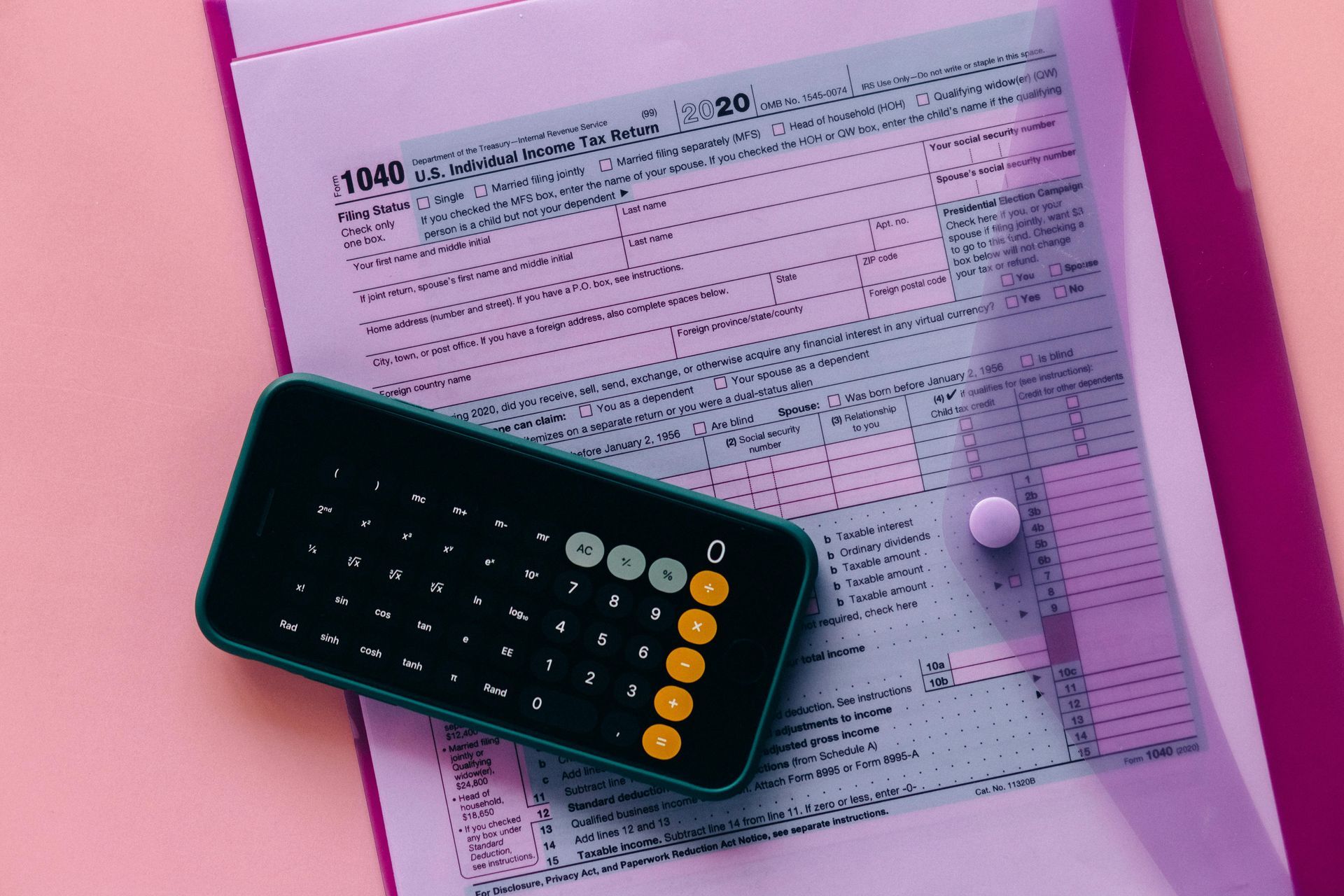Common Financial Mistakes to Avoid: Highlighting Pitfalls in Personal Finance Management

Managing personal finances can often feel like walking a tightrope. One wrong move, and you could find yourself in a financial mess. At Andrea Ward CPA, we understand that everyone makes mistakes, but some financial blunders can have serious consequences. This blog will explore common financial mistakes people often make and offer practical tips to steer clear of them. By spotting these pitfalls early, you can work toward a more secure financial future.
The Importance of Budgeting
Budgeting is one of the cornerstones of managing your money. Yet, many people skip this vital step. Living without a budget is like sailing without a map; you may drift off course until you hit a rocky shore. A budget helps you keep track of your income and expenses, ensuring you don’t spend more than you earn.
Take Sarah, for example. After graduating from college, she found herself drowning in debt after just one year of work. She loved dining out and shopping for the latest trends but never bothered to track her spending. When her credit card bill arrived, she was shocked to see how much she owed. After that wake-up call, Sarah created a budget. By setting aside specific amounts for essentials and fun, she managed to pay off her debt in just six months.
Overspending: The Silent Killer
Overspending is another common mistake that can sneak up on anyone. It’s easy to justify small purchases—who doesn’t deserve a little treat now and then? However, those little expenses can pile up quickly. For instance, if you spend $25 on lunch every workday, that adds up to over $6,000 a year!
To avoid overspending, consider using the 50/30/20 rule: allocate 50% of your income for needs (like rent and groceries), 30% for wants (like entertainment), and 20% for savings or paying off debt. This method not only helps you manage your expenses but also ensures you’re putting money aside for future needs.
Ignoring Emergency Funds
Another pitfall many people fall into is neglecting to build an emergency fund. Life is unpredictable; unexpected expenses like car repairs or medical bills can pop up out of nowhere. Without an emergency fund, you might have to rely on credit cards or loans, leading to more debt.
Financial experts recommend saving three to six months’ worth of living expenses in an easily accessible account. For example, if your monthly expenses total $2,000, aim for an emergency fund of $6,000 to $12,000. This cushion provides peace of mind and helps you avoid financial stress during tough times.
Credit Card Mismanagement
Credit cards can be both helpful and harmful. While they offer convenience and rewards, they can also lead to significant debt if not used wisely. Many people fall into the trap of using credit cards for things they can’t afford without considering the interest rates they’ll incur.
Take John’s story: he loved buying the latest gadgets but often charged them to his credit card without paying off the balance each month. Over time, he racked up thousands in debt due to high-interest rates. To avoid this mistake, always aim to pay off your credit card balance in full each month or at least make more than the minimum payment.
Lifestyle Inflation: Keeping Up with the Joneses
As your income grows, it’s tempting to upgrade your lifestyle—this phenomenon is known as lifestyle inflation. Many people think they deserve more simply because they earn more money. However, this mindset can lead to living paycheck to paycheck even with a higher salary.
Consider Emily’s journey: after getting a promotion at work, she immediately upgraded her car and moved into a pricier apartment. Within months, she found herself struggling financially again because she didn’t adjust her savings habits accordingly. To avoid lifestyle inflation, try maintaining your previous lifestyle when possible and directing any extra income toward savings or investments.
Not Setting Financial Goals
Failing to set clear financial goals is another common mistake that can hinder your progress toward financial security. Without defined objectives—whether saving for retirement or buying a home—it’s easy to lose focus on what truly matters.
Creating SMART (Specific, Measurable, Achievable, Relevant, Time-bound) goals can help clarify your vision for the future. Instead of saying "I want to save money," specify "I will save $5,000 for a vacation by next summer." This clarity makes it easier to track your progress and stay motivated.
Neglecting Retirement Savings
Many young professionals believe retirement savings are something they can put off until later; however, this is a dangerous misconception. The earlier you start saving for retirement, the more time your money has to grow through compound interest.
For example, if Sarah starts saving $200 per month at age 25 with an average annual return of 7%, she could have over $300,000 by age 65! Conversely, if she waits until age 35 to start saving the same amount each month, she would only accumulate about $150,000 by retirement age due to losing ten years of potential growth.
Failing to Review Finances Regularly
Lastly, many people make the mistake of not reviewing their finances regularly. Just as you wouldn’t drive without checking your mirrors or blind spots, you shouldn’t manage your finances without periodic reviews. Regularly assessing your budget and spending habits allows you to identify areas where you might be overspending or falling short of your goals.
Consider scheduling monthly check-ins with yourself or working with a financial advisor who can help guide these discussions and provide insights into improving your financial health.
Conclusion
Avoiding common financial mistakes requires awareness and proactive planning. By budgeting effectively and managing credit wisely while building an emergency fund and setting clear financial goals—you can set yourself up for long-term success. Remember that personal finance is not just about numbers; it's about creating a life that aligns with your values and dreams.
At Andrea Ward CPA, we’re committed to helping you navigate these challenges with confidence. Whether you're just starting out or looking to refine your strategies as your circumstances change, we’re here every step of the way. Let us partner with you on this journey toward financial stability and success—because everyone deserves peace of mind when it comes to their finances.
Andrea Ward, CPA
Andrea officially began her accounting career in 1987. But it all began much earlier than that as a kid when she meticulously budgeted her allowance to buy really cool toys. Since then, she has earned Cum Laude honors with a Bachelor in Business Administration, with equivalent minors in Finance and Economics from Texas A&M University. A CPA and Registered Investment Advisor, Andrea loves helping people accumulate wealth.












